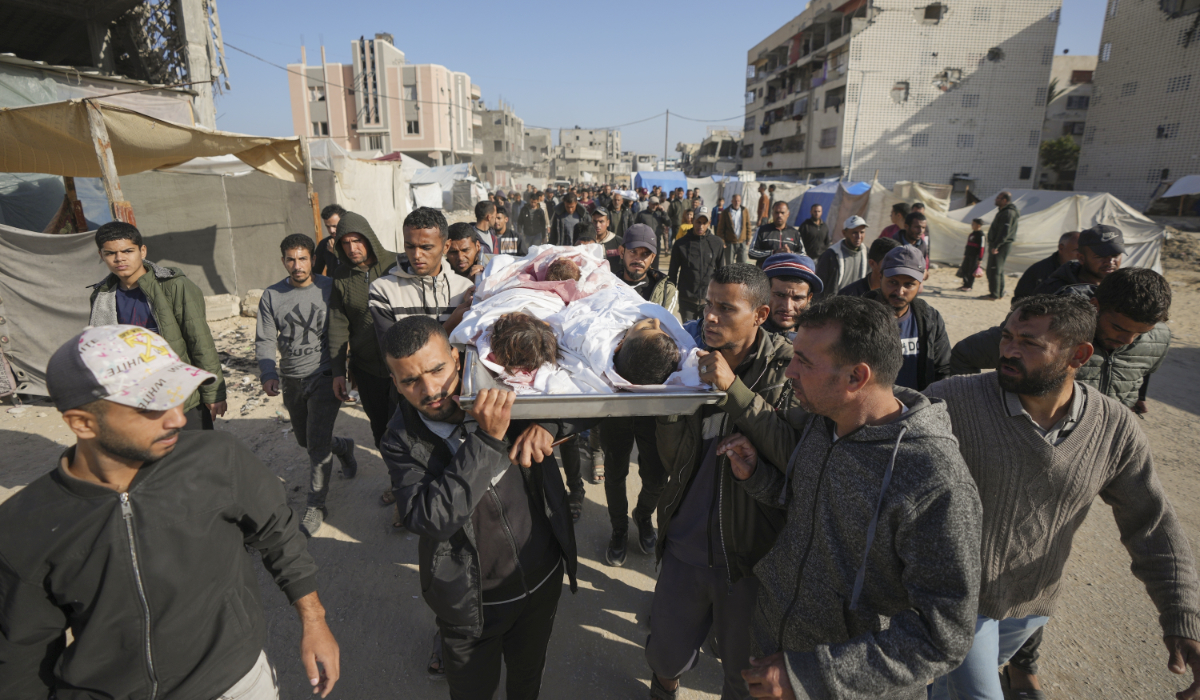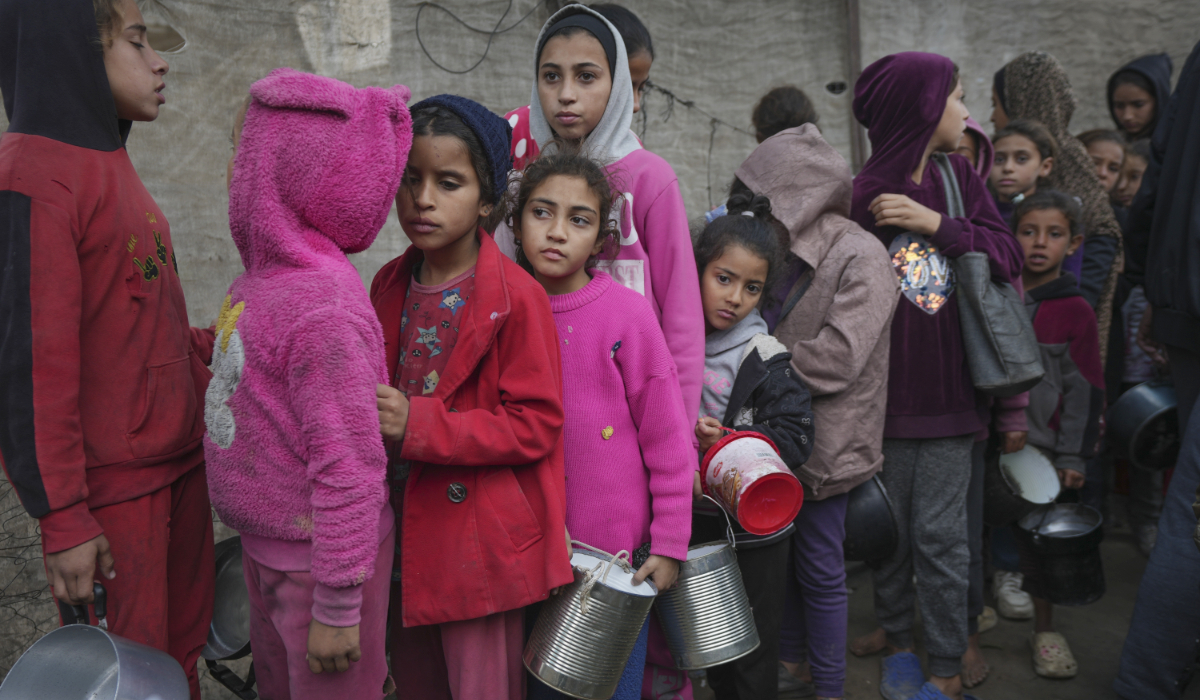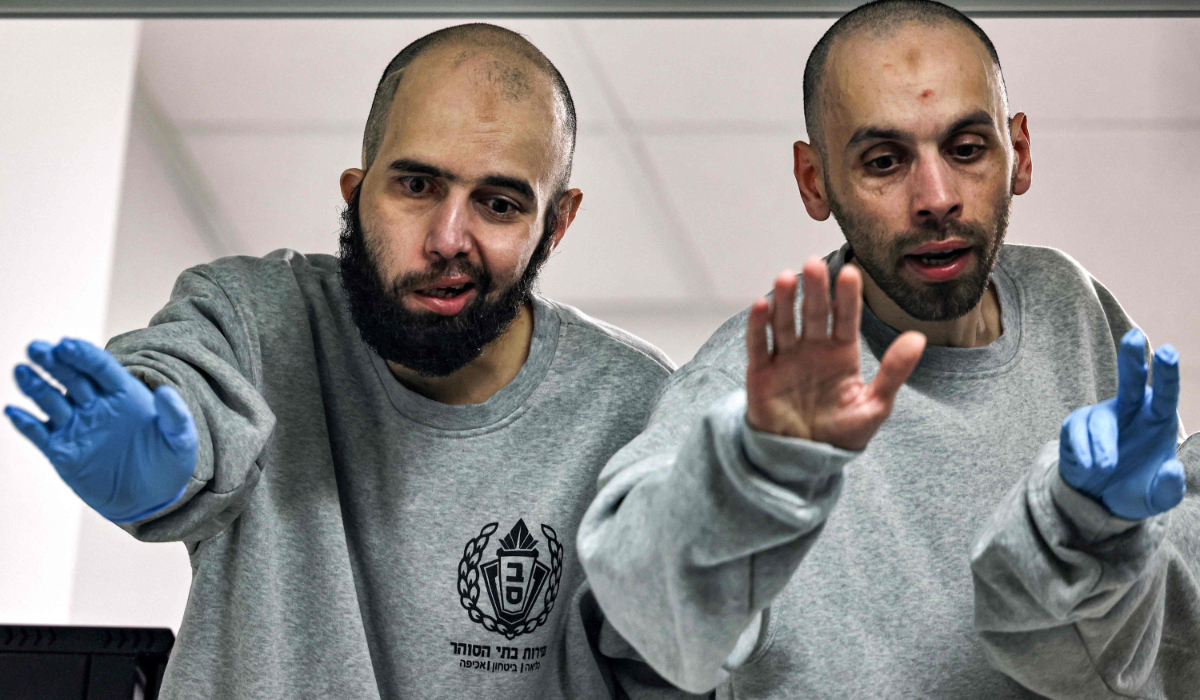BEIRUT: Security measures in Lebanon increased on Thursday following the assassination of Hamas leader Ismail Haniyeh in Tehran on Wednesday morning.
This, in turn, came after the assassination of senior Hezbollah military commander Fouad Shukr on Tuesday night in Beirut’s southern suburbs.
Hezbollah asked those in southern towns not to film security events and to disconnect fixed surveillance cameras from the internet, which it claimed was “infiltrated by Israel.”
Caution prevailed on the southern front, interrupted by Israeli raids and shelling on border towns.
In an effort to contain any deterioration in security, British Foreign Secretary David Lammy and Defense Secretary John Healey arrived in Beirut for talks with Parliament Speaker Nabih Berri, Prime Minister Najib Mikati, and Foreign Minister Abdullah Bou Habib.
Lammy called on “all parties to respect and implement Resolution 1701 and all its provisions and stipulations.”
Healy commended “the partnership between the Lebanese and British armies” and called for “addressing all conflicts through dialogue and diplomatic means, as the violence will have dire consequences for everyone.”
Berri informed the British delegation “that Lebanon does not want war but is ready to defend itself, and Israeli arrogance is dragging the region toward unpredictable dangers.”
Mikati said Lebanon appreciated the message of support from British Prime Minister Keir Starmer, conveyed by the two secretaries of state.
He stressed that “Israel has violated Lebanese sovereignty and attacked our land, in violation of international laws, and it assaults civilians blatantly every day” and added: “The solution can only be political by implementing international resolutions, including UN Resolution 1701.”
He called on Britain and the international community to “put pressure on Israel to stop its aggression.”
Mikati’s appeal came as the Ministry of Foreign Affairs filed a complaint with the UN Security Council and the UN secretary-general through its permanent mission in New York.
The ministry called on Security Council members “to condemn the Israeli cyberattacks on Lebanon, which pose a serious threat to civil aviation services and endanger the security and safety of communication networks, devices, applications, and electronic data in vital Lebanese facilities.”
The ministry’s actions are based on a report from the Lebanese Ministry of Telecommunications, which revealed: “The source of GPS jamming is in northern Israel and caused a decline in the accuracy of positioning in Lebanon, affecting transport and communication services.
“Repeated warnings from the Network Time Protocol server were reported, showing the frequent loss of GPS signals and a decline in the quality of service and user experience for mobile network operators.”
The Ministry of Foreign Affairs has also requested its permanent mission in Geneva to file a complaint with the International Telecommunication Union, calling for necessary technical measures to stop such attacks and assist Lebanon in ensuring proper functioning of its communication networks.
Also on Thursday, Egyptian Ambassador to Lebanon Alaa Moussa discussed the latest developments with Berri.
The envoy affirmed Egypt’s rejection of any aggression against Lebanon and highlighted Egypt’s support.
Moussa stressed the importance of calm as expansion of the conflict would result in dire consequences for both Lebanon and the entire region.
He said: “We have already warned that the Israeli aggression against Gaza will expand the cycle of violence circle and confrontations on many and multiple fronts, which actually happened in the past days.”
The ambassador conveyed a message from Egypt that warned “resorting to political assassinations and the consequences resulting of this approach that will lead us into a vicious circle.”
Moussa added the international community must assume their responsibilities through the UN Security Council by issuing a binding resolution to reach a ceasefire in Gaza, achieving de-escalation on all fronts and especially in south Lebanon.
The body of Hezbollah’s Fouad Shukr was found under the debris of a residential building in Haret Hreik, along with a second body that was identified as Iranian adviser Milad Bedi. The bodies of Hanaa Bashire and her daughter, Dr. Salwa Zuhair Al-Bitar, who lived in the targeted building, were also recovered. This brings the total number of Israeli airstrike victims to eight, two of whom were children.
Iranian news agencies reported that Bedi was a “military adviser of Al-Quds Force, the overseas arm of the Revolutionary Guards.
Shortly before Shukr’s funeral, Hezbollah hung giant portraits of him bearing the words “Fuad Al-Muqawama” — Arabic for “the heart of resilience” — on roads to the south.
The Lebanese people held their breath on Thursday amid fears of retaliation from Hezbollah and Iran.
Private institutions in Beirut shortened working hours for employees to 4 p.m., an hour before Hezbollah chief Hassan Nasrallah’s speech at Shukr’s funeral procession.
Nasrallah warned the group was bound to respond to the killing and said the deaths of both Shukr and the Hamas leader “crossed red lines.”






























